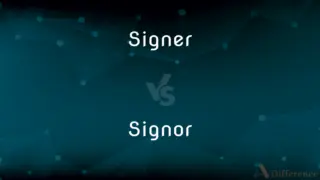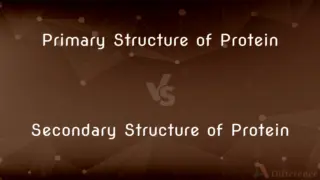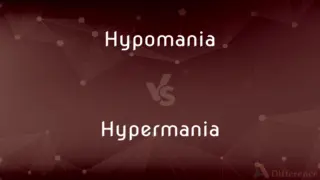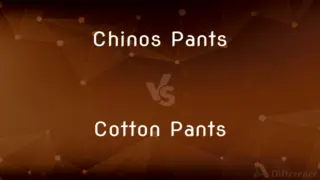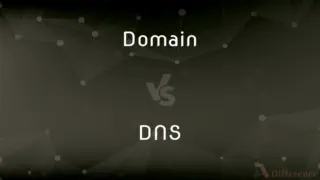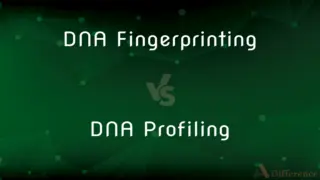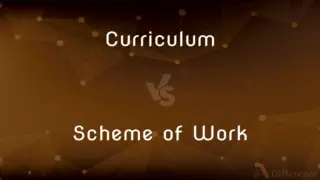Decide vs. Choose — What's the Difference?
By Fiza Rafique & Urooj Arif — Updated on March 9, 2024
Decide involves making a conclusion or resolution after consideration, often implying a final judgment, while choose refers to selecting from multiple options or preferences, highlighting the act of picking one over others.

Difference Between Decide and Choose
Table of Contents
ADVERTISEMENT
Key Differences
Deciding often encompasses a process of deliberation, weighing various factors before arriving at a definitive conclusion. Choosing, on the other hand, focuses more on the act of selection from available alternatives, based on preference or suitability.
Decisions can be complex, involving significant thought and analysis, especially in scenarios with profound implications. Choices can range from simple to complex but often involve personal preference or taste.
Decide may also imply a sense of commitment to the chosen course of action, suggesting a readiness to move forward. In contrast, choose might not always carry the same level of commitment, as it can refer to more casual or less consequential selections.
In a broader sense, deciding can be seen as a step in the process of making choices, where one not only selects an option but also commits to it and plans the subsequent steps.
Comparison Chart
Definition
To make a final judgment or conclusion
To select from a range of options
ADVERTISEMENT
Focus
Deliberation and conclusion
Selection and preference
Complexity
Often involves complex deliberation
Can range from simple to complex
Commitment
Implies a readiness to act on the decision
May not imply the same level of commitment
Context
Used in more formal or significant scenarios
Used in a wider range of everyday scenarios
Compare with Definitions
Decide
Decisions often lead to a course of action.
He decided to move abroad for his studies, a choice that changed his life's direction.
Choose
Choosing emphasizes picking one option over others.
She chose the red dress over the blue one for the gala.
Decide
Deciding implies a final judgment after weighing options.
After much thought, she decided to pursue a career in medicine.
Choose
Choices can vary in significance, from trivial to crucial.
Choosing a college major is a significant decision for many students.
Decide
Deciding brings a sense of closure to the decision-making process.
They finally decided on a wedding date after months of discussion.
Choose
Choices often reflect personal taste or preference.
He chose chocolate ice cream simply because it was his favorite.
Decide
In business or strategic contexts, deciding involves significant planning.
The board decided to merge with their competitor to enhance market share.
Choose
Choices are made frequently in everyday life.
Every morning, she chooses to start her day with a brisk walk.
Decide
Deciding can involve complex analysis, especially in critical situations.
The jury decided on the verdict after days of deliberation.
Choose
Choosing implies multiple viable alternatives.
With so many talented candidates, it was hard to choose just one.
Decide
To reach a conclusion or form a judgment or opinion about (something) by reasoning or consideration
Decide what to do.
Choose
To select from a number of possible alternatives; decide on and pick out
Which book did you choose at the library?.
Decide
To cause to make or reach a decision
"The presence of so many witnesses decided him at once to flee" (Robert Louis Stevenson).
Choose
To prefer above others
Chooses the supermarket over the neighborhood grocery store.
Decide
To settle conclusively all contention or uncertainty about
Decide a case.
Decided the dispute in favor of the workers.
Choose
To determine or decide
Chose to fly rather than drive.
Decide
To influence or determine the outcome of
A few votes decided the election.
Choose
To make a choice; make a selection
Was used to doing as she chose.
Decide
To pronounce a judgment; announce a verdict.
Choose
To pick; to make the choice of; to select.
I chose a nice ripe apple from the fruit bowl.
Decide
To reach a decision; make up one's mind.
Choose
To elect.
He was chosen as president in 1990.
Decide
(ambitransitive) to resolve (a contest, problem, dispute, etc.); to choose, determine, or settle
The election will be decided on foreign policies.
We must decide our next move.
Her last-minute goal decided the game.
Choose
To decide to act in a certain way.
I chose to walk to work today.
Decide
(intransitive) to make a judgment, especially after deliberation
You must decide between good and evil.
I have decided that it is healthier to walk to work.
Choose
To prefer; to wish; to desire.
Decide
(transitive) to cause someone to come to a decision
Choose
(mathematics) The binomial coefficient of the previous and following number.
The number of distinct subsets of size k from a set of size n is or "n choose k".
Decide
(obsolete) to cut off; to separate
Choose
The act of choosing; selection.
Decide
To cut off; to separate.
Our seat denies us traffic here;The sea, too near, decides us from the rest.
Choose
The power, right, or privilege of choosing; election.
Decide
To bring to a termination, as a question, controversy, struggle, by giving the victory to one side or party; to render judgment concerning; to determine; to settle.
So shall thy judgment be; thyself hast decided it.
The quarrel toucheth none but us alone;Betwixt ourselves let us decide it then.
Choose
To make choice of; to select; to take by way of preference from two or more objects offered; to elect; as, to choose the least of two evils.
Choose me for a humble friend.
Decide
To determine; to form a definite opinion; to come to a conclusion; to give decision; as, the court decided in favor of the defendant.
Who shall decide, when doctors disagree?
Choose
To wish; to desire; to prefer.
The landlady now returned to know if we did not choose a more genteel apartment.
Decide
Reach, make, or come to a decision about something;
We finally decided after lengthy deliberations
Choose
To make a selection; to decide.
They had only to choose between implicit obedience and open rebellion.
Decide
Bring to an end; settle conclusively;
The case was decided
The judge decided the case in favor of the plaintiff
The father adjudicated when the sons were quarreling over their inheritance
Choose
To do otherwise.
Thou canst not choose but know who I am.
Decide
Cause to decide;
This new development finally decided me!
Choose
Pick out, select, or choose from a number of alternatives;
Take any one of these cards
Choose a good husband for your daughter
She selected a pair of shoes from among the dozen the salesgirl had shown her
Decide
Influence or determine;
The vote in New Hampshire often decides the outcome of the Presidential election
Choose
Select as an alternative; choose instead; prefer as an alternative;
I always choose the fish over the meat courses in this restaurant
She opted for the job on the East coast
Choose
See fit or proper to act in a certain way; decide to act in a certain way;
She chose not to attend classes and now she failed the exam
Common Curiosities
Is deciding more critical than choosing?
Deciding often involves more critical thinking and is used in contexts with significant consequences, while choosing can apply to a broader range of everyday selections.
Can you choose without deciding?
Yes, you can choose without a formal decision-making process, especially in cases involving personal preferences or less significant matters.
Do businesses decide or choose their strategies?
Businesses typically decide on their strategies after thorough analysis, although choosing might be involved in selecting among strategic options.
Can the terms decide and choose be used interchangeably?
In many contexts, the terms can be used interchangeably, but subtle differences in connotation might make one more appropriate than the other depending on the situation.
How does one improve their deciding or choosing abilities?
Improving these abilities can involve enhancing critical thinking skills, becoming more aware of personal biases, and gaining experience in making varied choices and decisions.
Is deciding always a deliberate process?
While deciding often involves deliberation, some decisions can be more intuitive, especially under time constraints or in less significant matters.
How do cultural factors influence deciding and choosing?
Cultural backgrounds can significantly impact these processes, with some cultures placing more emphasis on collective decision-making and others on individual choices.
How does emotion influence deciding and choosing?
Emotions can significantly influence both, but they might play a more prominent role in choosing, where personal preferences are more involved, while deciding might lean more towards rational analysis.
Is there a psychological difference between deciding and choosing?
Psychologically, deciding might involve more cognitive effort and stress, especially in significant matters, while choosing might be more related to personal preferences and values.
How do time constraints affect deciding and choosing?
Time constraints can pressure these processes, sometimes leading to snap decisions or choices without thorough consideration, which might not always yield the best outcomes.
What role does experience play in deciding and choosing?
Experience can enhance both by providing reference points and learning from past outcomes, leading to more informed and confident decisions and choices.
Can technology aid in deciding and choosing?
Yes, technology can provide tools and data for better analysis and simulation, aiding in more informed decisions and offering more options for choices.
How do ethical considerations impact deciding and choosing?
Ethical considerations can play a crucial role, especially in decisions and choices that affect others, guiding towards more responsible and moral outcomes.
Can indecisiveness affect both deciding and choosing?
Yes, indecisiveness can complicate both processes, making it challenging to make choices or come to decisions, often leading to delays or dissatisfaction.
How do consequences influence the decision-making and choosing processes?
The potential consequences of an action can significantly influence these processes, with more severe or long-term repercussions necessitating more careful consideration.
Share Your Discovery

Previous Comparison
Affiliate vs. Associate
Next Comparison
Stevedore vs. LongshoremanAuthor Spotlight
Written by
Fiza RafiqueFiza Rafique is a skilled content writer at AskDifference.com, where she meticulously refines and enhances written pieces. Drawing from her vast editorial expertise, Fiza ensures clarity, accuracy, and precision in every article. Passionate about language, she continually seeks to elevate the quality of content for readers worldwide.
Co-written by
Urooj ArifUrooj is a skilled content writer at Ask Difference, known for her exceptional ability to simplify complex topics into engaging and informative content. With a passion for research and a flair for clear, concise writing, she consistently delivers articles that resonate with our diverse audience.






